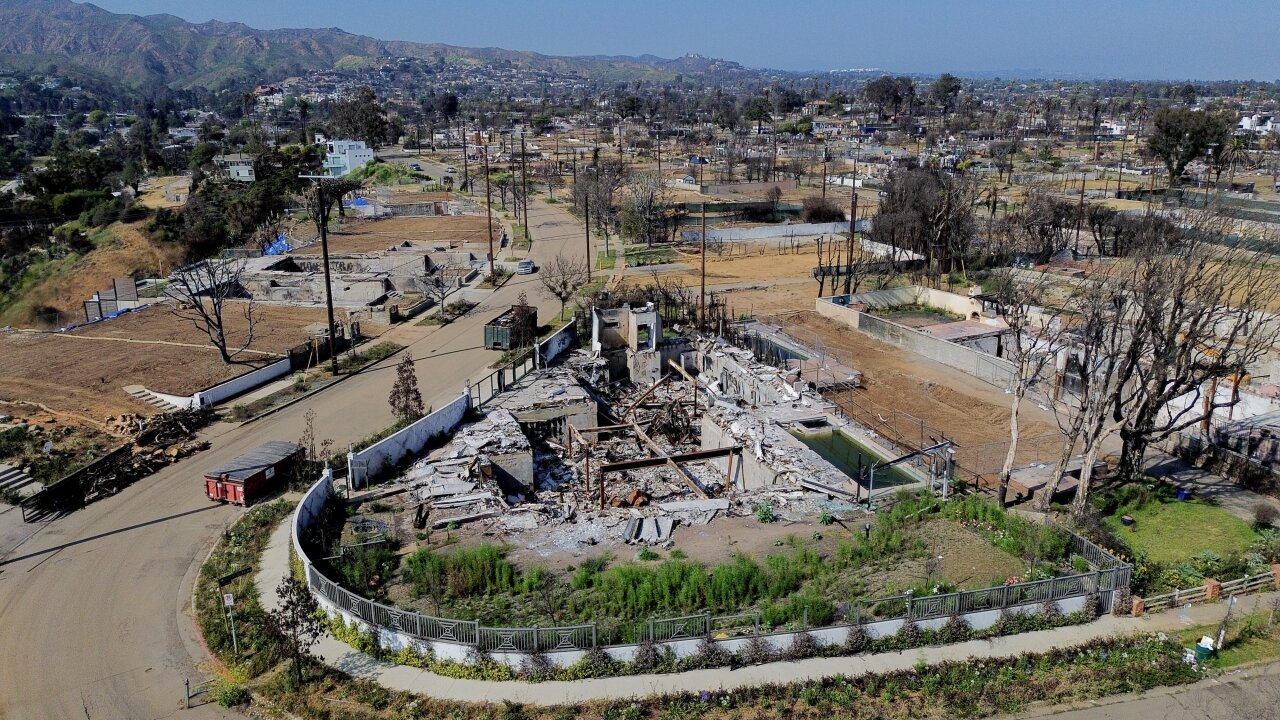-
California sellers of older homes in high-risk areas must disclose to potential buyers not only a dwelling's susceptibility to fire but what they've done to address those vulnerabilities.
September 8 -
Digital Insurance stories related to insurance regulation.
August 27 -
More than six months after the LA catastrophe, officials have yet to complete regulations as wildfires burn across the state this week
August 12 -
California's insurance regulator and a consumer advocacy group continue battles over the funding of the state's home insurer of last resort, and other issues.
August 1 -
Damage claims from the Eaton wildfire could wipe out the $21 billion fund created to protect utilities and their customers when an investor-owned utility's equipment is deemed responsible.
July 25 -
An academic paper presented at the Brookings Institute's annual conference found that future wildfire risks are already having economically significant impacts on financial markets, municipal borrowing costs and vulnerable communities.
July 23 -
The state forecasts eroding coastlines will endanger $18 billion of existing homes and commercial buildings in the coming decades.
July 3 -
After California's own insurer of last resort was held liable for smoke claims, and a probe of State Farm was launched, a new task force is ordered to set standards for smoke damage claims.
July 2 -
The chance at a piece of strong returns has encouraged investment banks, hedge funds and debt investors to vie for contracts to fund the litigation, according to people involved in transactions.
June 30 -
The state's insurer of last resort is facing an investigation by the California Department of Insurance as well as lawsuits from policyholders.
June 26 -
After the L.A. fires, a regulator's probe of State Farm claims practices and a looming wave of lawsuits expose gaps in the legal responsibilities of both insurers and policyholders.
June 17 -
Even before January's fires in Los Angeles, change-of-address data shows residential moves based on fire risks and insurance availability.
June 16 -
Valkyrie Holmes, co-founder and CEO of Faura, discusses how AI and analytics are helping carriers identify and manage weather risks.
June 11 -
Hedge funds are facing pushback in California as their bets tied to insurance claims stemming from the Los Angeles wildfires are attacked as unethical.
June 9 -
The Insurance Information Institute report calls for a focus on high-quality data to target insurance availability and affordability in wildfire-prone areas of California.
May 21 -
Why next-gen risk models are the key to market resilience.
May 7 Guidewire
Guidewire -
These insurtechs have used AI to improve their businesses.
May 5 -
The probe into the deadly Southern California Eaton fire is likely to take a year or more as authorities examine Edison International's utility equipment as the possible cause, according to the company's CEO.
May 1 -
Insured losses from natural catastrophes could soar to $145 billion this year as population growth, urban sprawl and climate change combine to supercharge risks, according to a report by Swiss Re Institute.
April 29 -
Catastrophes significantly increase claim volume and severity, resulting in extended claims cycles and frustrated policyholders.
April 23 Shift Technology
Shift Technology

















